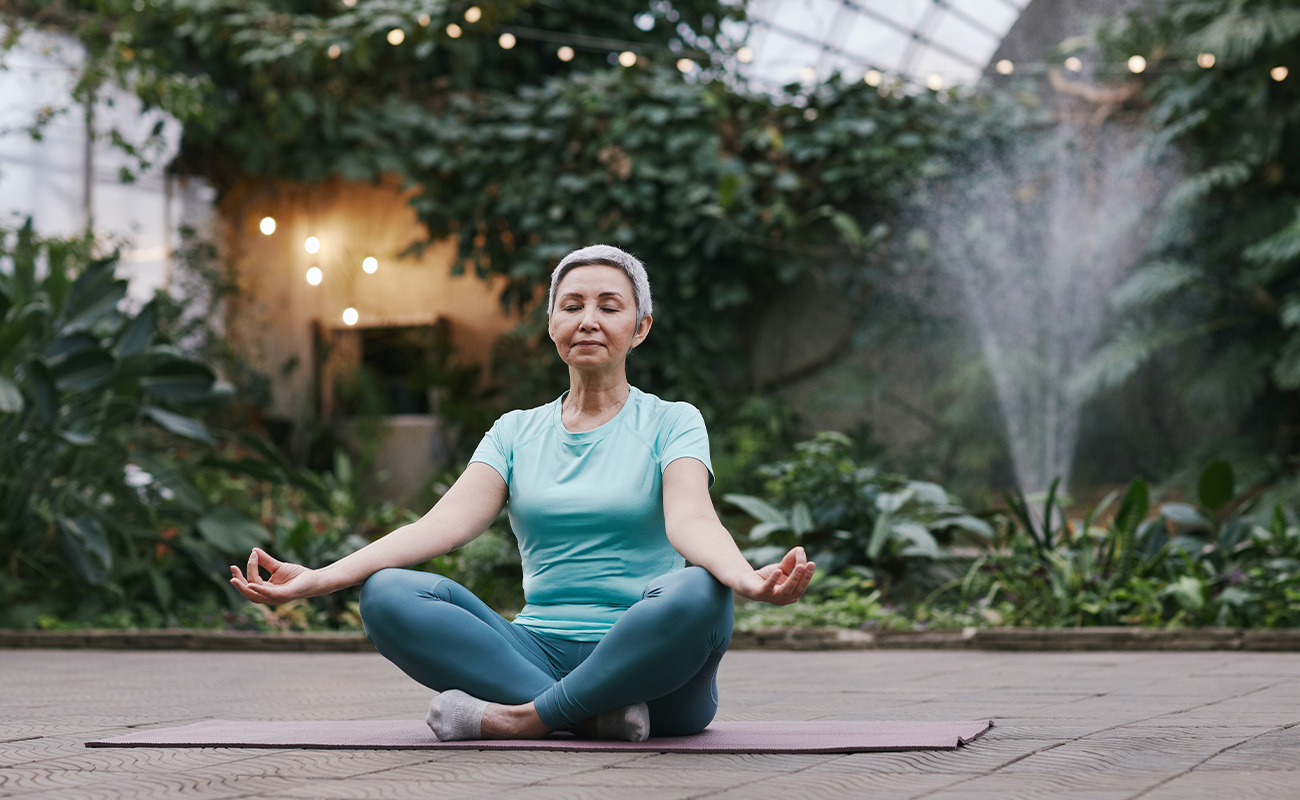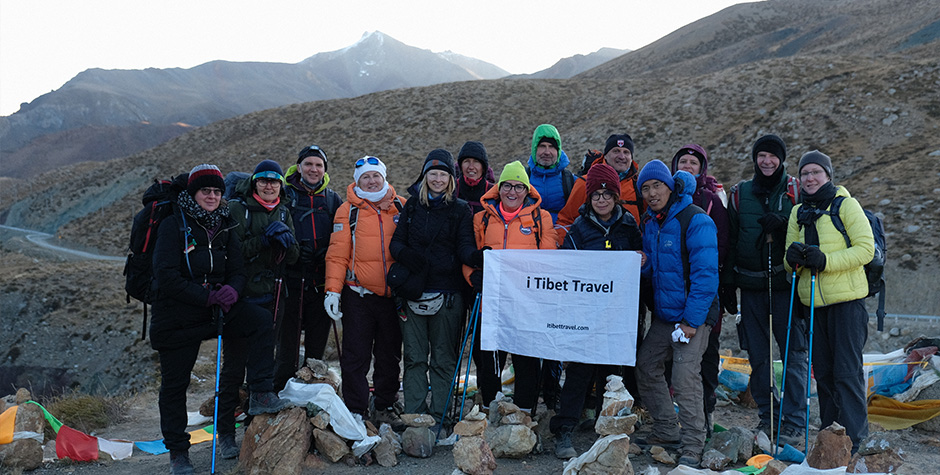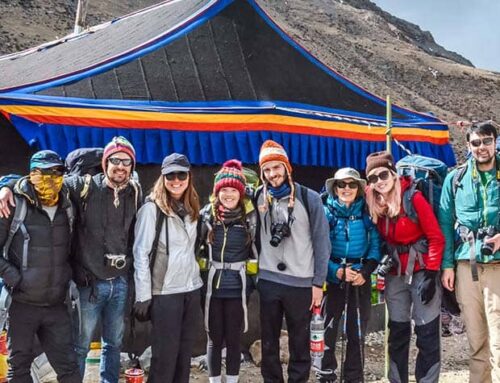In today’s fast-paced world, finding moments of peace and tranquility can seem like an impossible task. The constant bombardment of information and the demands of daily life can leave us feeling overwhelmed and disconnected from ourselves. This is where mindfulness meditation comes into play. By embracing this ancient practice, we can learn to cultivate a sense of peace, presence, and self-awareness amidst the chaos. In this article, we will explore the world of mindfulness meditation, its benefits, techniques, scientific evidence, and how to incorporate it into our daily lives.

Understanding Mindfulness Meditation
What is Mindfulness?
Mindfulness is the practice of intentionally bringing one's attention to the present moment without judgment. It involves observing our thoughts, emotions, and physical sensations with a sense of curiosity and acceptance. By cultivating mindfulness, we can develop a greater understanding of ourselves and our experiences, leading to a more balanced and fulfilling life.
Exploring Meditation
Meditation serves as a vehicle for practicing mindfulness. It provides a dedicated space and time to engage in the practice of focusing the mind and cultivating a state of deep relaxation. Through meditation, we can train our minds to become more aware and attuned to the present moment, ultimately transforming our relationship with ourselves and the world around us.
Benefits of Mindfulness Meditation
Stress Reduction and Relaxation
In today's fast-paced society, stress has become a common companion for many individuals. Mindfulness meditation offers a powerful antidote to stress, providing a means to relax the body and calm the mind. Regular practice has been shown to reduce cortisol levels, the hormone associated with stress, leading to a greater sense of relaxation and overall well-being.
Improved Focus and Concentration
In a world filled with distractions, maintaining focus and concentration can be challenging. Mindfulness meditation strengthens the ability to direct and sustain attention, improving cognitive function and enhancing productivity. By training the mind to stay present and focused, individuals can experience heightened clarity, improved decision-making, and increased efficiency in daily tasks.
Emotional Well-being
Mindfulness meditation nurtures emotional well-being by allowing individuals to develop a healthier relationship with their thoughts and emotions. Through non-judgmental awareness, one can observe and understand their emotional experiences more objectively. This practice cultivates emotional resilience, reduces reactivity, and promotes a greater sense of balance and equanimity.
Enhanced Self-Awareness
Self-awareness is a fundamental aspect of personal growth and development. Mindfulness meditation facilitates a deep exploration of one's inner landscape, helping individuals gain insights into their thoughts, beliefs, and behavioral patterns. By cultivating self-awareness, individuals can make conscious choices aligned with their values and aspirations, leading to a more fulfilling and authentic life.
Getting Started with Mindfulness Meditation
Finding a Quiet Space
To embark on your mindfulness meditation journey, it's essential to find a quiet and comfortable space where you can dedicate uninterrupted time to practice. Create a designated area free from distractions and clutter, allowing you to fully immerse yourself in the present moment.
Posture and Breathing
Adopting a comfortable posture is crucial for a successful meditation practice. Whether sitting on a cushion or a chair, ensure your spine is upright and relaxed. Take a few deep breaths, allowing your body to settle into a state of ease. Focus on the sensation of your breath as you inhale and exhale, anchoring yourself in the present moment.
Focusing the Mind
With a settled posture and steady breath, gently bring your attention to the present moment. Notice the sensations in your body, the thoughts passing through your mind, and the sounds around you. Whenever your mind wanders, kindly guide it back to the present moment without judgment. This gentle redirection of attention is at the heart of mindfulness meditation.
Different Techniques of Mindfulness Meditation
Mindful Breathing
Mindful breathing is a foundational practice in mindfulness meditation. Focus your attention on the breath, noticing the sensation of each inhale and exhale. If your mind wanders, gently bring your focus back to the breath, using it as an anchor to the present moment.
Body Scan Meditation
In body scan meditation, systematically bring awareness to different parts of your body, starting from your toes and moving upward. Notice any sensations or areas of tension, and with each breath, release and relax those areas. This practice cultivates a deep connection between the mind and body.
Loving-Kindness Meditation
Loving-kindness meditation involves directing well-wishes and compassion towards oneself and others. Begin by offering kind and loving thoughts to yourself, then gradually extend these wishes to loved ones, acquaintances, and even to those with whom you may have challenges. This practice nurtures empathy, gratitude, and a sense of interconnectedness.
Walking Meditation
Walking meditation combines the benefits of mindfulness with physical movement. Find a quiet and peaceful path to walk, preferably in nature. Pay attention to the sensation of your feet touching the ground, the movement of your body, and the surrounding sounds and sights. Allow yourself to be fully present and engaged in the act of walking.
Overcoming Common Challenges
Dealing with a Restless Mind
It's common for the mind to wander during meditation. Instead of getting frustrated, view it as an opportunity to practice mindfulness. Whenever you notice your mind wandering, gently guide your attention back to your breath or chosen focal point. With patience and consistent practice, you'll develop a greater ability to sustain focus.
Managing Time
Finding time for meditation can be challenging in a busy schedule. Start with short sessions, even just a few minutes a day, and gradually increase the duration as you become more comfortable. Consider integrating meditation into your daily routine, such as before or after waking up, during lunch breaks, or before bed.
Maintaining Consistency
Consistency is key to reaping the benefits of mindfulness meditation. Set realistic goals and establish a regular practice that works for you. Consider joining a meditation group or using guided meditation apps to help stay motivated and accountable. Remember, every moment spent in meditation contributes to your overall well-being.
Incorporating Mindfulness into Daily Life
Mindful Eating
Transform mealtime into a mindful experience by savoring each bite. Slow down, engage your senses, and fully appreciate the flavors, textures, and aromas of your food. Be aware of the nourishment you're providing your body and the gratitude for the sustenance.
Mindful Communication
In conversations, practice active listening and give your full attention to the speaker. Avoid distractions and judgments, truly hearing their words and emotions. Respond with mindfulness and compassion, fostering deeper connections and understanding.
Mindful Work
Infuse mindfulness into your work routine by taking short breaks to pause, breathe, and reset your focus. Pay attention to the task at hand, bringing a sense of curiosity and openness. Mindful work allows for greater creativity, productivity, and a sense of fulfillment.
The Science Behind Mindfulness Meditation
Neurological Effects
Scientific research has shown that mindfulness meditation can positively impact the brain. It activates regions associated with attention, emotional regulation, and self-awareness, leading to changes in brain structure and function. These neural adaptations contribute to improved well-being and cognitive abilities.
Emotional Regulation
Mindfulness meditation has been found to enhance emotional regulation skills. It helps individuals become more aware of their emotions without being overwhelmed by them. By practicing non-reactivity and acceptance, one can develop a healthier relationship with their emotions and respond to challenging situations with greater equanimity.
Stress Reduction Mechanisms
Mindfulness meditation activates the body's relaxation response, reducing the production of stress hormones and promoting a state of calm. It also improves the functioning of the parasympathetic nervous system, responsible for rest and digestion. These physiological changes contribute to decreased stress levels and a greater sense of well-being.
Mindfulness Meditation for Different Situations
Mindfulness for Stressful Times
During stressful moments, mindfulness meditation can serve as a refuge. By turning inward and focusing on the present moment, individuals can find a sense of calm amidst chaos. The practice helps to alleviate stress, enhance resilience, and provide a fresh perspective on challenging circumstances.
Mindfulness for Better Sleep
Mindfulness meditation can improve sleep quality and combat insomnia. By quieting the mind, relaxing the body, and letting go of worries, individuals can prepare themselves for a restful night's sleep. Incorporating mindfulness into a bedtime routine promotes relaxation and creates a conducive environment for a peaceful slumber.
Mindfulness for Emotional Resilience
Life is full of ups and downs, and mindfulness meditation can support emotional resilience. By developing an accepting and non-judgmental attitude towards emotions, individuals can navigate difficult emotions with greater ease. Mindfulness empowers individuals to acknowledge, process, and respond to emotions in a way that fosters emotional well-being.
Conclusion Mindfulness meditation
Mindfulness meditation is a powerful practice that allows individuals to cultivate peace, presence, and self-awareness in their daily lives. By embracing mindfulness, one can experience numerous benefits, including stress reduction, improved focus, emotional well-being, and enhanced self-awareness. Through different techniques and consistent practice, mindfulness can be integrated into daily routines, leading to a more balanced and fulfilling life. Start your mindfulness meditation journey today and witness the transformative power it holds.
FAQs (Frequently Asked Questions)
Can mindfulness meditation help improve focus and concentration?
Yes, mindfulness meditation is known to enhance focus and concentration. By training the mind to stay present and redirecting attention when it wanders, individuals can develop greater cognitive abilities and sustained focus.
Is it necessary to sit in a specific posture during mindfulness meditation?
While sitting in a comfortable and upright posture is ideal for mindfulness meditation, it is not a strict requirement. The key is to find a position that allows you to be alert and relaxed, whether sitting on a cushion, chair, or even lying down.
Can mindfulness meditation be practiced during daily activities?
Yes, mindfulness can be integrated into daily activities. It involves bringing full attention and awareness to the present moment, whether you are eating, walking, or engaging in routine tasks. Mindful awareness can enhance the quality of your experiences throughout the day.
Can mindfulness meditation help with managing pain?
Mindfulness meditation has been found to be beneficial in managing chronic pain. By cultivating non-judgmental awareness and changing the relationship with pain, individuals may experience reduced suffering and improved pain tolerance.
How does mindfulness meditation contribute to overall well-being?
Mindfulness meditation promotes overall well-being by reducing stress, improving emotional regulation, enhancing self-awareness, and fostering a sense of inner peace. It helps individuals develop a more positive and compassionate relationship with themselves and others.
Remember, mindfulness meditation is a personal journey, and it may take time to find the techniques and practices that resonate with you. Stay consistent, be patient with yourself, and enjoy the transformative effects of mindfulness in your life.
About Tibet Travel & Tours
Tibet Travel & Tours is a local travel agency in Tibet that offers unique and authentic experiences to travelers from all around the world. As a leading tour operator in Tibet, we provide high-quality Tibet Travel services that are tailored to our clients' needs and preferences.
Our team of experienced and knowledgeable professionals strives to ensure that our clients have a hassle-free and memorable trip in Tibet. We specialize in various types of tours, including cultural tours, trekking and hiking tours, and adventure tours.
Our commitment to providing exceptional service has earned us a reputation as one of the best local travel agencies in Tibet. Contact us today to plan your unforgettable trip to Tibet.
Explore Tibet with a local Tibetan Travel Agency
If you're looking to explore Tibet, starting your journey with a reputable Tibetan travel agency in Tibet is crucial. Tibet Travel & Tours is a great choice to begin your adventure with their extensive knowledge of the region and commitment to responsible tourism.
Their Tibet tour packages cater to a range of interests and budgets, making it easy to plan a trip that suits your needs. Before embarking on your tibet tour, it's essential to have the right Tibet travel information and necessary documents, including a Tibet travel permit.
The Tibet Travel Planner provided by i-Tibet travel is an excellent resource to plan your trip, including tips on what to pack, where to stay, and what to see.
For beginners, the "About Tibet" guide provided by i-Tibet travel offers a comprehensive overview of the region's history, culture, and top attractions. So, start your Tibet travel plan here with i-Tibet travel and discover the magic of Tibet for yourself.










